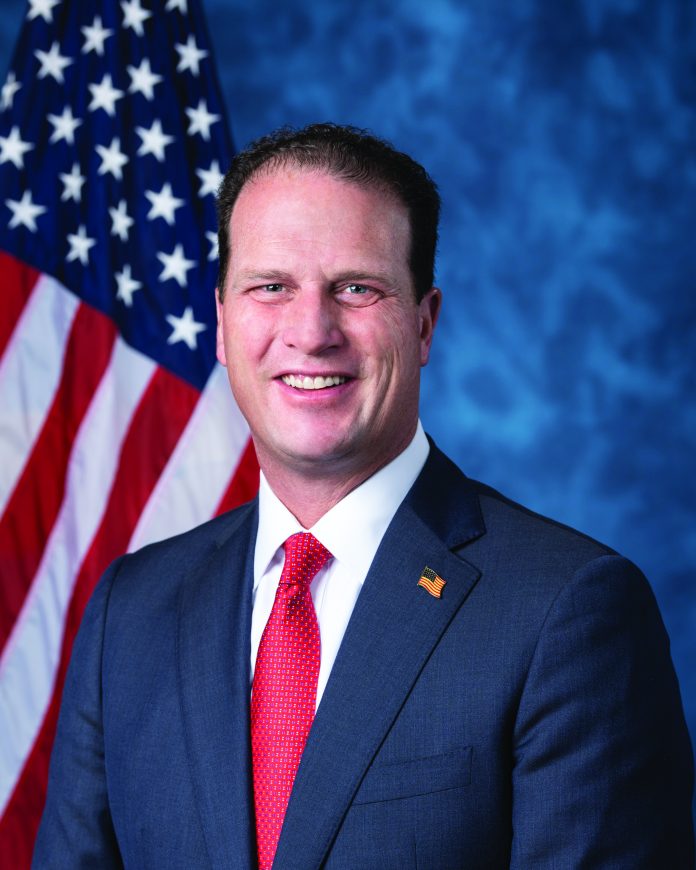WASHINGTON, DC In response to the growing mental health crisis in America, Congressman August Pfluger is proud to announce the introduction of the Early Action and Responsiveness Lifts Youth (EARLY) Minds Act. Co-led by Representatives Kathy Castor, John Joyce, and John Sarbanes, this crucial bipartisan legislation aims to provide early intervention and prevention services to children and adults struggling with mental health challenges.
According to a news release, recent statistics reveal a concerning trend, with over 20% of youth reporting serious contemplation of suicide in the past year alone. Additionally, 40% of teens report persistent feelings of sadness or hopelessness, representing a significant increase from previous years. These alarming figures underscore the urgent need for proactive measures to address the mental well-being of our youth.
The EARLY Minds Act seeks to empower states by allowing them to allocate up to 5% of their Mental Health Block Grant (MHBG) funding towards prevention and early intervention initiatives. This strategic allocation of resources is critical in identifying and supporting Americans before their mental health challenges escalate.
Furthermore, the bill mandates that the Department of Health and Human Services (HHS) provide biennial reports to Congress, detailing states’ efforts in prevention and early intervention. These reports will include comprehensive information on activities undertaken, demographics of individuals served, achieved outcomes, and any other pertinent data, the release said.
“Research consistently demonstrates the effectiveness of early intervention in mitigating the severity of mental health challenges among children and adults,” said Representative August Pfluger. “By allowing states the flexibility to utilize MHBG funds for prevention and early intervention, the EARLY Minds Act presents a commonsense solution to address the worsening youth mental health crisis.”
“Prevention and early intervention are key to avoiding crises and reducing the severity of mental health issues, particularly in children,” said Representative Kathy Castor. “As the Co-Chair of the Children’s Health Care Caucus, I am committed to taking action to keep our youngest neighbors healthy and well. Allowing states to use SAMHSA’s Community Mental Health Services Block Grant funding for prevention and early intervention is a common-sense approach that will allow us to meet an urgent need. This bipartisan bill will help support the majority of children who are struggling with their mental health by connecting them with evidence-based and effective services when they need it the most. I look forward to working with Representatives Pfluger, Sarbanes, and Joyce to advance this legislation to address our nation’s mental health emergency.”
“Helping children in crisis receive the support and care that they need is vital to families and communities across our country,” said Representative John Joyce. “As a physician and a Co-Chair of the Children’s Health Care Caucus, I’m proud to co-sponsor the EARLY Minds Act, which would ensure that SAMHSA’s Community Mental Health Services Block Grant resources can be used to address the mental health crisis affecting our nation’s youth.”
“The youth mental health crisis impacts every community in this country, regardless of zip code,” said Representative John Sarbanes. “When 40% of teens report persistent feelings of sadness or hopelessness, we must do everything we can to wrap our arms around those struggling with mental health challenges and connect them with the resources they need to lead happy, healthy lives. I am proud to join my colleagues in introducing this bipartisan legislation to allow states the critical flexibility to use SAMHSA’s Community Mental Health Services Block Grant funding for prevention and early intervention efforts, which are key to stopping mental health symptoms from escalating.”
The EARLY Minds Act has garnered widespread support from leading mental health advocacy organizations, including Mental Health America, Children’s Hospital Association, National Association of State Mental Health Program Directors, American Psychological Association, American Psychiatric Association, American Academy of Pediatrics, Center for Law and Social Policy (CLASP), Futures Without Violence, American Foundation for Suicide Prevention, Youth Villages, Eating Disorders Coalition for Research, Policy, & Action, The Carter Center, and Nemours Children’s Health.
Children’s Hospital Association CEO Matthew Cook said, “Proactive early intervention and prevention can dramatically change the trajectory of a child’s life by addressing mental health issues before they escalate. The Early Minds Act gives states greater flexibility to make resources available for early detection and prevention services like mental health screenings, educational support for parents, and interventions for children facing behavioral health challenges. The Children’s Hospital Association is grateful for Rep. Pfluger, Rep. Castor, Rep. Joyce and Rep. Sarbanes’ bipartisan leadership to take steps to combat the escalating youth mental health crisis.”
“We already have a youth mental health crisis in our country and millions of additional youth are at risk of developing a mental health condition,” said Tim Clement, Vice President of Federal Government Affairs for Mental Health America. “Allowing Mental Health Block Grant funding to go towards prevention and early intervention is a necessary step that will save lives and foster resiliency. Mental Health America strongly supports the EARLY Minds Act because it’s the right solution at the right time.”
“The American Psychological Association applauds Representatives Pfluger, Castor, Joyce and Sarbanes for introducing the bipartisan EARLY Minds Act, which will help expand quality, evidence-based mental health prevention and early intervention services to all communities,” said APA CEO Arthur C. Evans Jr., PhD. “Intervening before the onset of mental illness is a cornerstone of a population health approach to treatment. Allowing the Community Mental Health Services Block Grant to be used for prevention and early intervention is critical for ensuring that more people, including the very youngest, do not develop mental health conditions and can lead healthy, productive and fulfilled lives.”




